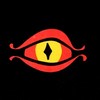tarcolanMovies Moderator and General DogsbodyPosts: 6046 Send Message |
|
| Gandolorin |
|
| GreenhillFox |
|
| Gandolorin |
|
tarcolanMovies Moderator and General DogsbodyPosts: 6046 Send Message |
|
| Gandolorin |
|
| GreenhillFox |
|
tarcolanMovies Moderator and General DogsbodyPosts: 6046 Send Message |
|
| Gandolorin |
|
tarcolanMovies Moderator and General DogsbodyPosts: 6046 Send Message |
|
| GreenhillFox |
|
| Gandolorin |
|
| Elthir |
|
| Gandolorin |
|
| Elthir |
|
| Lord_Sauron |
|
| Elthir |
|
| Gandolorin |
|
| Elthir |
|
tarcolanMovies Moderator and General DogsbodyPosts: 6046 Send Message |
|
| Gandolorin |
|
| Elthir |
|
| Gandolorin |
|
| Lord_Sauron |
|
| Elthir |
|
tarcolanMovies Moderator and General DogsbodyPosts: 6046 Send Message |
|
| Lord_Sauron |
|
| Elthir |
|
tarcolanMovies Moderator and General DogsbodyPosts: 6046 Send Message |
|
| Elthir |
|
| Gandolorin |
|
tarcolanMovies Moderator and General DogsbodyPosts: 6046 Send Message |
|
| Lord_Sauron |
|
| Elthir |
|
| Gandolorin |
|
 Author
Author








 Slips of the pen
Slips of the pen





 ) stab to his head with her normal sword when he stumbled forward after Merry's attack. So the key weapon at any rate is that dagger (and maybe he was one of the Black Númenoreans, anyway ...
) stab to his head with her normal sword when he stumbled forward after Merry's attack. So the key weapon at any rate is that dagger (and maybe he was one of the Black Númenoreans, anyway ...  )
)